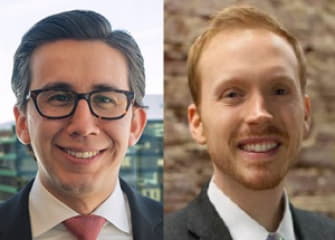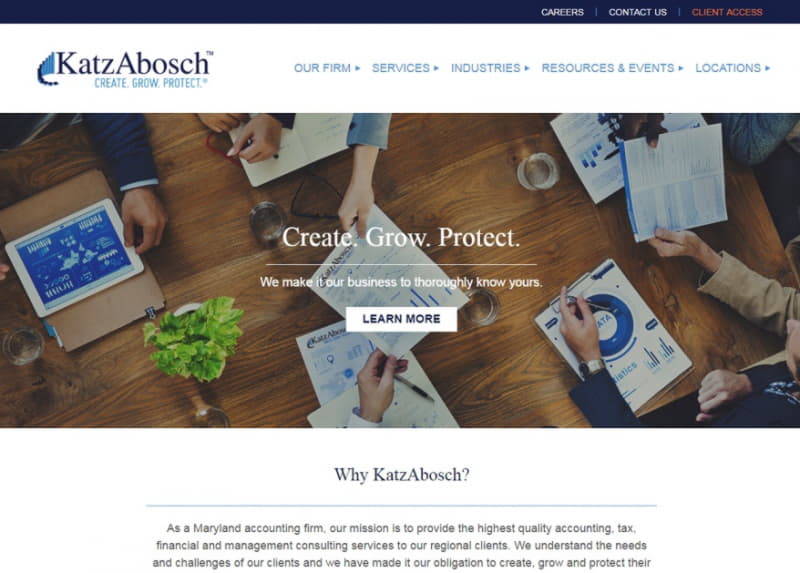
Thomas Sanchez and Anthony Shop
Click here for Part I, Part II & Part III
Forecasting the next decade of global opportunities and challenges in emerging technology
Thomas Sanchez and Anthony Shop are the CEO and Chief Strategy Officer, respectively, of Social Driver, a digital agency based in Washington, DC. Social Driver provides its clients with a range of digital services that include social media strategy, web development, video, and brand design. The company has worked with industry giants such as Honda, Sprint, the Motion Picture Association of America, Computer Sciences Corporation, American Hospital Association, and more. Since starting in 2011, Social Driver has grown at a blistering pace: it’s currently the 7th fastest growing agency in the US. The company has earned the DC Chamber of Commerce’s DC Small Business Champion award, as well as the Academy of Interactive and Visual Arts’ Communicator Award of Distinction. Additionally, Thomas has been named an Innovator of the Year (DC Hispanic Chamber of Commerce) and Emerging Entrepreneur of the Year (Capital Area Gay and Lesbian Chamber of Commerce), while Anthony has been listed as one of the Washington Business Journal’s 40 Under 40.
Thomas Sanchez and Anthony Shop spoke with citybizlist publisher Edwin Warfield for this interview.
EDWIN WARFIELD: You’ve grown the company thus far without taking outside investment. How were able to pull that off?
THOMAS SANCHEZ: At Social Driver all of our growth has been organic, and we’ve been really lucky in that. We subscribe to a philosophy to have as little debt as possible, to grow but not to grow so fast that we have to seek outside investment or outside debt. Luckily, we’ve been able to do that at Social Driver. One of the ways that we’ve been able to do that is with the advice of our partners—whether that’s KatzAbosch or other partners that have come to the table—to help us think about how can we reduce our days in receivable, and how can we increase the amount of days that we give to our vendors?
Little things like that can make a huge difference in a small business that doesn’t want to take on debt, because otherwise you’d have to take on a line of credit to fill that gap. Just thinking through and being a smart financial planner is really important to be able to have that growth.
The other thing is we spend a lot of time training our team, and thinking through: How can we bring high-performing people onto our team but also give them the skills that they need to develop? When you do that, that allows you to bring people in who maybe had experience in one industry who are looking to move into a different industry, or maybe people who are just beginning their career. You can bring them in and grow their career, and as they’re growing their career, you can give them new income opportunities, new career development—but it also allows you to grow your bottom line at a decent pace as well. Those are all strategies that we have employed, so that we don’t have to take out a lot of debt or go sell our ideas to investors.
ANTHONY SHOP: To be a business owner, to be a business leader, you have to pull on different experiences and training you have had. For me, getting an MBA was really valuable. It grew my network to meet other business-minded people—I didn’t have that background, and I learned a lot about strategy and finance. But, of course, once you’re out into the real world, what you learn on the job is a little bit different. Then, you’ve got to get the right experts plugged in: outside partners and internal folks.
Thomas and I have benefited from the fact that we come from very different professional backgrounds. I’m a PR communications person by background. Thomas is a technology and consulting person by background. Sometimes, we come at problems from different angles and we have better solutions.
That was a way that we succeeded when we were only two people. As two people, we were able to combine technology and communication. Since we’ve grown our team, we’ve looked to bring in people who have different skill sets: people rooted to technology, people rooted to communication, people with business backgrounds. It’s a mix of formal training and informal skills that people have because they learned in other ways. You know, you don’t want too many MBAs around the table—that’s not a good thing—but having one in the room can bring an interesting perspective. We’re always looking to mix up different types of experience.
Q. Where do you want to take the company in the next five years?
THOMAS SANCHEZ: Our first five years have been phenomenal, and it’s easy to go back to that founding story over and over, but I think it’s so important to look. Starting last year, we started doing a new strategic plan for our next five years, and when you sit down and you start thinking about building a company from 50 people to where you’re going next, it’s a completely different experiment than when you were zero people and you’re thinking about how do you get up to 40–50 people.
So, we really had to think through that vision: Who do we become? How are we going to get there, and put together a solid business plan? The business we’re building for the next five years looks a lot different than the business that we just built. It’s much more focused on service and how we work, how we work together, how we develop processes—the standardized outcomes, so that things aren’t so individually driven. It’s going to be a completely different company.
ANTHONY SHOP: There’s a phrase I really like, that I think applies to the future: “What got you here won’t get you there.” Sometimes the things that helped you get from point A to point B—that were your assets—are the same things that would hold you back from moving to a future phase. So, I think we have to embrace the great things that have happened and, just like Thomas said, realize that going into the future as things continue to evolve, we can’t be wed to the way that we did things in the past and we have to look at different ways to grow and evolve the business. That is a challenging part of having a business, but a really exciting part of having a business, too, because no day is like the other when you move forward and the market changes so fast. You have to constantly anticipate that, otherwise you’ll be left in the dust.
Connect with Thomas and Anthony on LinkedIn
Sponsored by:
Founded in 1969, KatzAbosch is one of the largest CPA and business consulting services in the Mid-Atlantic region. Our mission is to provide the highest quality accounting, tax, financial and management consulting services to our clients. We understand the needs and challenges of our clients and we have made it our obligation to create, grow and protect asset value. The experts at KatzAbosch offer a full service solution while maintaining a tradition of ethics and incorporating the latest technology and unique business practices. Excellence in an industry often begins with how those closest to the company—its clients and employees—feel about it. For these individuals, KatzAbosch is a place where people and businesses excel and prosper. Our advisors can meet all of your service needs including; Audit & Accounting, Business Valuation & Litigation Support, Consulting, Estate Planning & Administration, Financial Institution Services, Forensic Accounting & Fraud Examinations, State and Local Tax (SALT), Taxes & Planning.


Edwin Warfield, CEO of citybizlist, conducts the CEO Interviews.
If you're interested in reaching CEOs, please contact edwin.warfield@citybuzz.co
Connect on LinkedIn

















